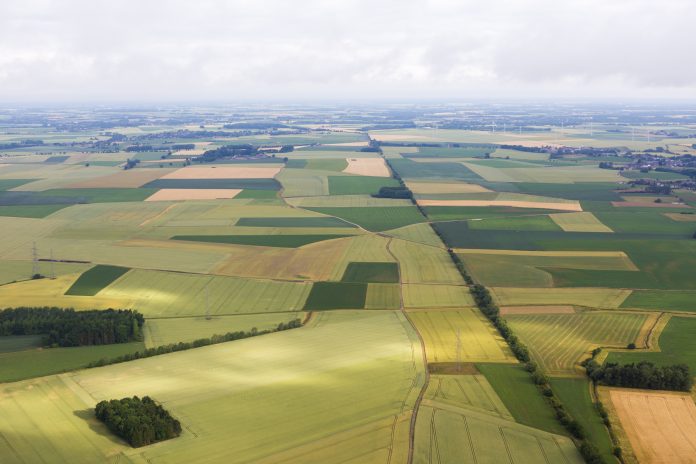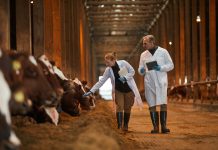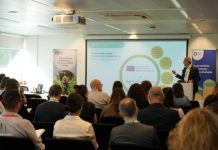Open Access Government highlights the priorities of Japan’s Agriculture, Forestry and Fisheries Research Council, as it supports workers through COVID-19 and works towards sustainability goals
The Agriculture, Forestry and Fisheries Research Council (AFFRC) in Japan conduct research each and every day to help achieve national and international sustainability goals. Since its formation, the Council’s wider duties and responsibilities have been:
- To formulate the basic plan for research in agriculture, forestry and fisheries.
- Liaising between and coordinating experimental research and the work of general administrative departments.
- Surveying the status and results of new and ongoing Research and Development (R&D).
- Dealing with matters concerning independent administrative agencies such as the National Agriculture and Food Research Organization (NARO).
- Organising subsidies for R&D conducted by prefectures, private companies and more.
- Improving the quality of research and the qualifications of researchers themselves.
While the above are both ongoing and fundamental, the Council’s priorities for 2021 and beyond have been shaped dramatically by the COVID-19 pandemic, and focus heavily on building back better after crises. As part of Japan’s Ministry of Agriculture, Forestry and
Fisheries (MAFF) the Council has formulated the latest “Agriculture, Forestry and Fisheries Research Innovation Strategy 2021,” announced in June 2021. The aim of the strategy is to create world-class innovation in the fields of agriculture, forestry and fisheries and contribute to the realisation of the “green food system strategy,” which was formulated in May this year.
The main priorities of the strategy consist of:
• Analysing the current situation in Japan and overseas following the COVID-19 pandemic: How can we achieve sustainable agriculture, forestry and fisheries, a successful recovery for society and the realisation of health through food?
• Prioritising three R&D fields where innovation can be expected in agriculture, forestry and fisheries-related industries, including smart agriculture, forestry and fisheries, the environment and bio-based solutions. The council will present the vision, concrete direction and path towards realisation.
• Strengthen the development of R&D regarding the environment, using AI and data, open innovation, start-up support, construction of global R&D system, and more to promote R&D in industry academia, government. Furthermore, it is vital to also promote the social implementation of research.
Smart agriculture
The Smart Agriculture Demonstration Project, originally established in 2019, is a project aimed at accelerating the social implementation of smart agriculture by introducing and demonstrating cutting-edge technologies such as robots, AI and IoT. The purpose is to introduce smart agricultural technology to production sites, use and demonstrate the technology for approximately two years, and then analyse the impacts and benefits of introducing the technology to management. Now, in 2021, we have started to see some results of the project, and they are hugely positive.
The introduction of smart agricultural technology has reduced working hours in almost all areas, particularly in extremely labour-intensive positions. For example, results have shown a 40% reduction in working hours for those working with open field vegetables. Farmers have then taken advantage of these reduced working hours and started to carry out sales activities themselves which improved the overall management, leading to a 40% increase in selling prices.
In addition to the simple solution of reducing working hours, smart technology has also expanded the range of farmers by enabling unskilled workers to perform the same tasks as skilled workers.
The project is currently in its third year, and the open call for participants has now opened. The project is focusing on five main demonstration themes as a response to important agricultural policy issues:
- Build a production system for export-priority items that meets overseas needs.
- Utilisation of new agricultural support services such as sharing information, data and technology.
- Realisation of smart commercial distribution such as an effective response to changes in demand and cooperation between production and consumption.
- Successfully adapt to the “new normal” post-COVID- 19. This includes the transition to working remotely and thus conducting further labour saving.
- Construction of strong and sustainable regional agriculture with services in place for disaster prevention and mitigation.
Human resources
These focus areas reflect the differences that the last year has made on the agriculture, forestry and fisheries industry. As well as prioritising technology and smart systems, Japan is also making sure not to forget the people that make these industries a success, and this has become even more apparent during the COVID-19 pandemic. In 2015, the Agriculture, Forestry and Fisheries Research Council implemented a policy of strengthening human resource development: the “Agriculture, Forestry and Fisheries Research Basic Plan,” and it continues today with the human resource development programme in agriculture, forestry and fisheries research. It is outlined on their website that “people are the foundation for enhancing international competitiveness in the field of agriculture, forestry and fisheries research and producing high-quality research results, and today it is important to develop human resources who are rich in creativity and willing to take on challenges.”











